2024-01-09
"On the first day, Yuan marks the beginning, and Dan refers to the sun." On January 1st, 27 international friends from Singapore, including Ong Liang Sheng, Du Shi Wu Chen, Lin Bai Qin Hua, Tiffany Liu, Liu Zhihui, Wu Meilan, Ang Guahar, Wu Huizheng, Yang Xinhuan, and Ling Huaxing, visited the Matao Village in Wangde Street, Changqing District, Jinan. Together, they immersed themselves in the atmosphere of the Spring Festival, unlocking the cultural codes of intangible heritage and experiencing Shandong's handmade culture.
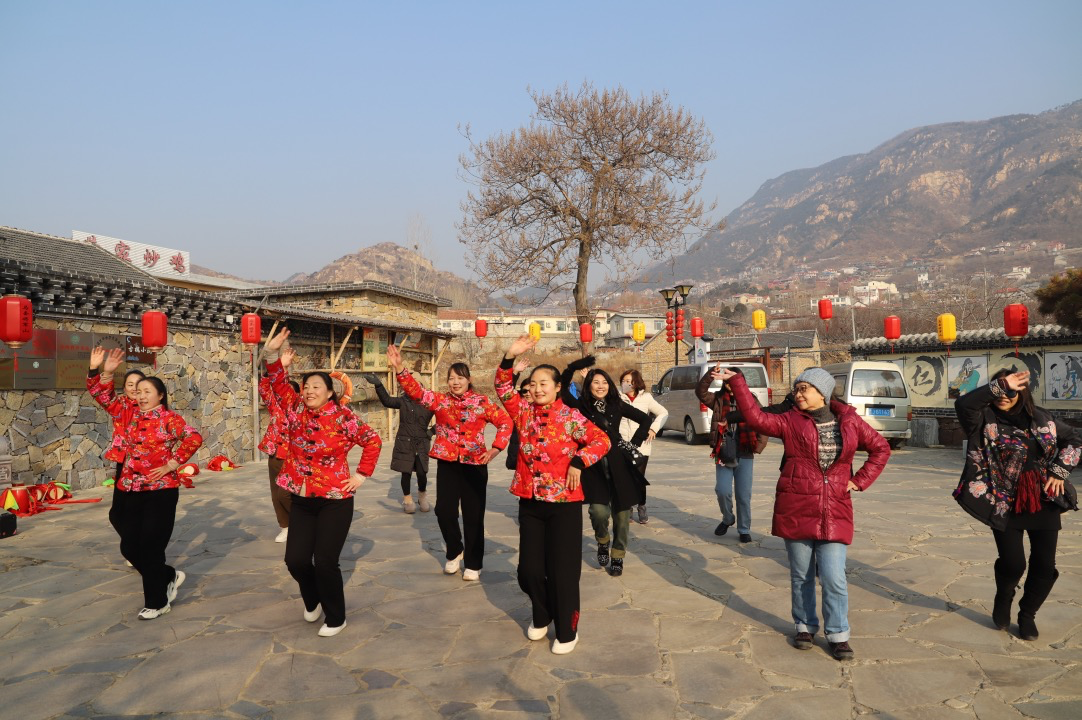
Under ancient locust trees, the Matao Village yangko team, dressed in vibrant ethnic costumes, performed the large yangko dance and square dance. They warmly welcomed the visitors with the resounding drums, lively yangko, and cheerful dance steps.
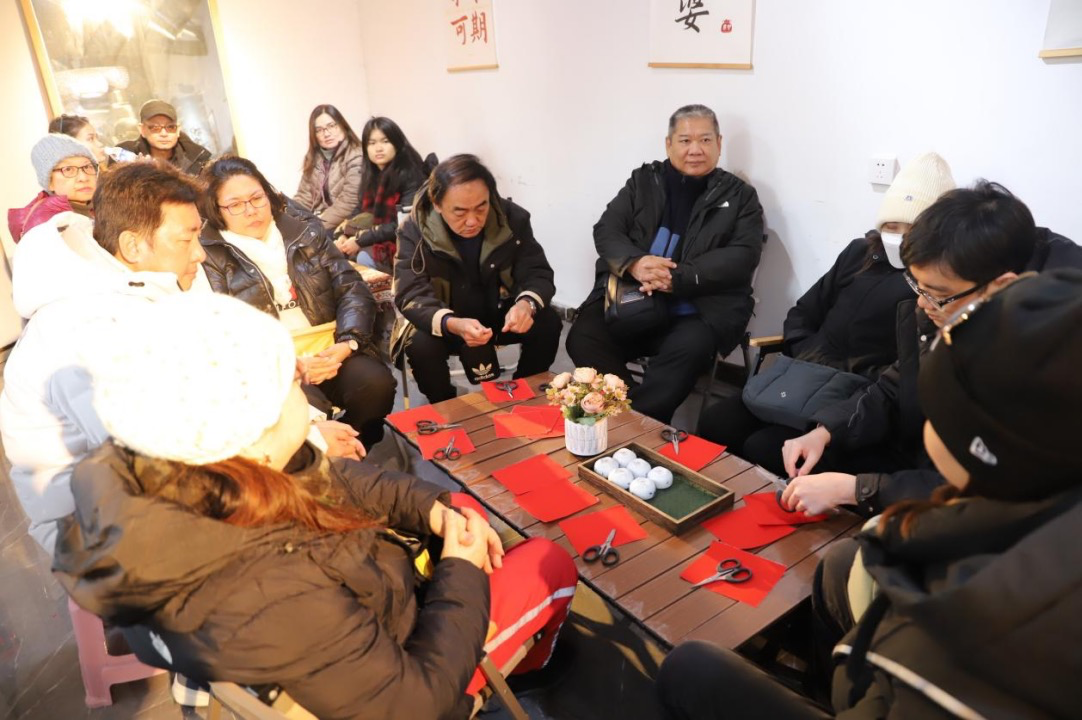
A pair of scissors passed down for more than twenty years and an ordinary piece of red paper can transform into vivid images like a pomegranate sitting on a peony when in the hands of Zhao Ying, the fifth-generation inheritor of the intangible cultural heritage of Taishan paper-cutting. This left the Singaporean friends in awe. The paper-cutting teacher explained the history, beautiful meanings, and artistic features of paper-cutting to the international visitors. Starting with the basic techniques, the teacher taught them how to cut the auspicious character "Xi." After keenly observing, the foreign friends, filled with freshness and curiosity, eagerly tried their hand. Careful movements, focused expressions, and the rotation of paper—each "Xi" character took shape, and smiles lit up their faces. Excitedly, one of the friends remarked, "I never thought a simple piece of paper, sculpted by scissors, could become so vivid and full of stories. It's truly charming. I'll put the 'Xi' I cut on my door to wish for good luck next year!"
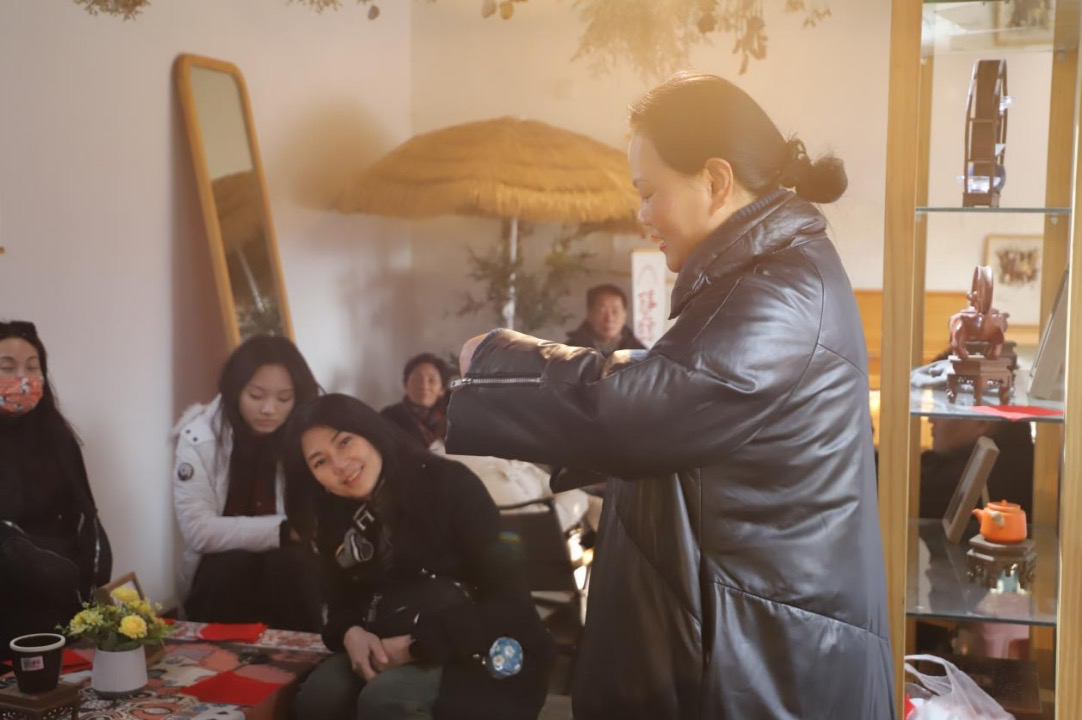
The air was filled with the fragrance of hot grills, and thin, crisp pancakes emerged from the oven. "Pancakes are a traditional Chinese delicacy. They were made from fragrant corn, cooked on a stove heated by cornstalks. The iron plate used for pancake stalls is called a 'Ao Zi' in Chinese. Using a clay Ao Zi to cook pancakes is a unique skill of the older generation of craftsmen, carrying the memories of generations of Shandong people..." explained Master Zhang from the pancake stall. Master Zhang ladled corn batter onto the hot Ao Zi, then used a slight rake to spread the batter counterclockwise evenly. As the batter cooked, a tantalizing aroma filled the air, and the edges of the pancake curled up. Seizing the moment, Master Zhang gracefully lifted the pancake. Singaporean friends observed the entire handmade pancake-making process up close, eager to showcase their pancake-making skills. After successfully making their own pancakes, everyone gave a thumbs-up to their creations.
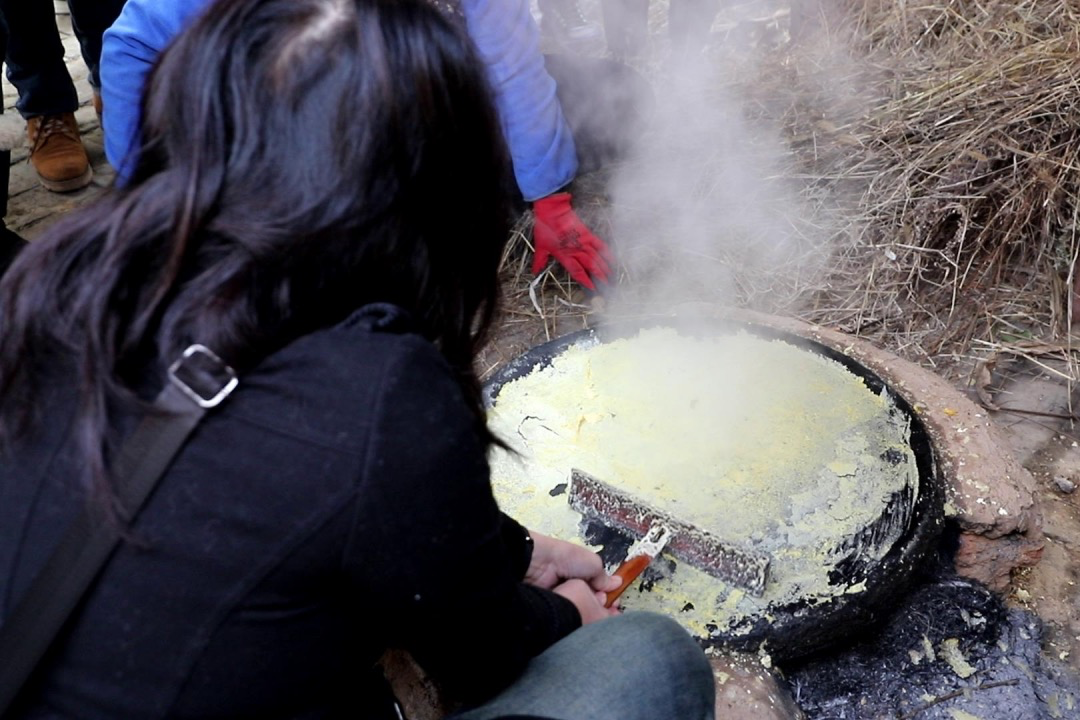
Before the meal, everyone gathered around the table and enthusiastically participated in the dumpling-making activity. Trying to encase the filling in the dough and creating dumplings may have been a bit chaotic, but the atmosphere was joyous, and laughter echoed. Ong Liang Sheng from Singapore excitedly described the process of making his own dumplings, saying, "I love dumplings, but this is my first time making them myself. It's truly a skillful task. The feeling of making dumplings together is wonderful, like a family gathering to make traditional food. I really enjoyed the process and am happy to learn more about the traditional Chinese food-making process and the culture behind it. I hope to have the opportunity to try making dumplings again in the future."
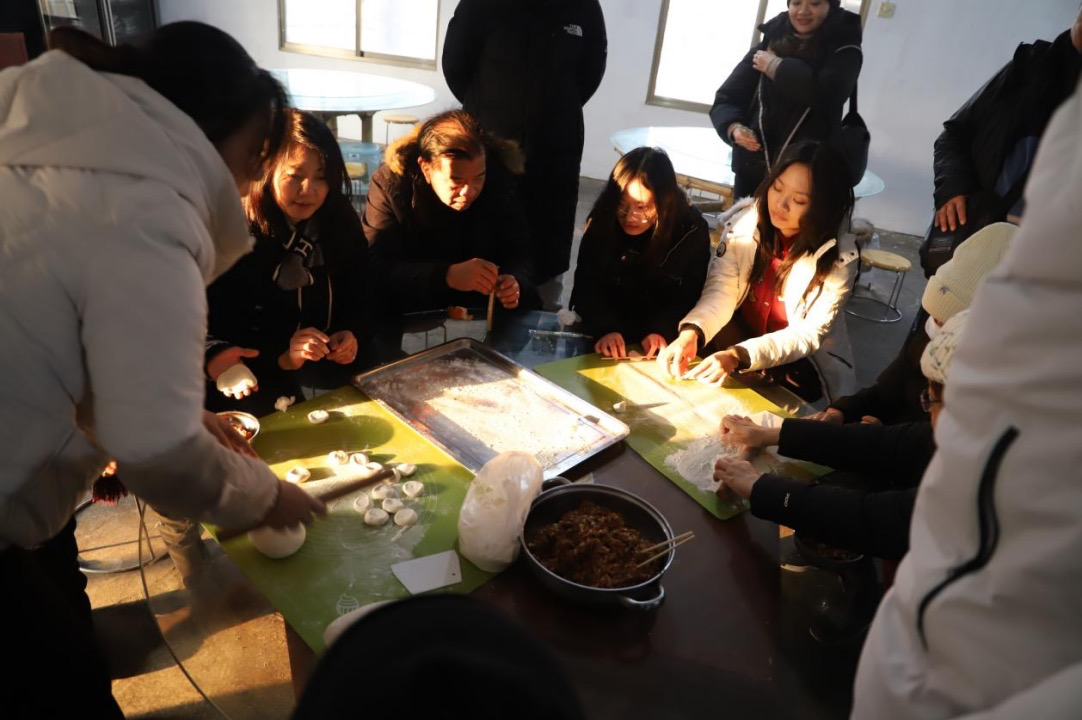
The rich "New Year flavor" not only brings together nearly 1.4 billion Chinese, but it is also gradually influencing more and more international friends. After the tour, Singaporean friends expressed that they still felt the experience was not enough, stating that this rural journey allowed them to appreciate the charm of China deeply. With its beautiful natural scenery and profound cultural heritage, they felt highly fortunate to experience everything personally.
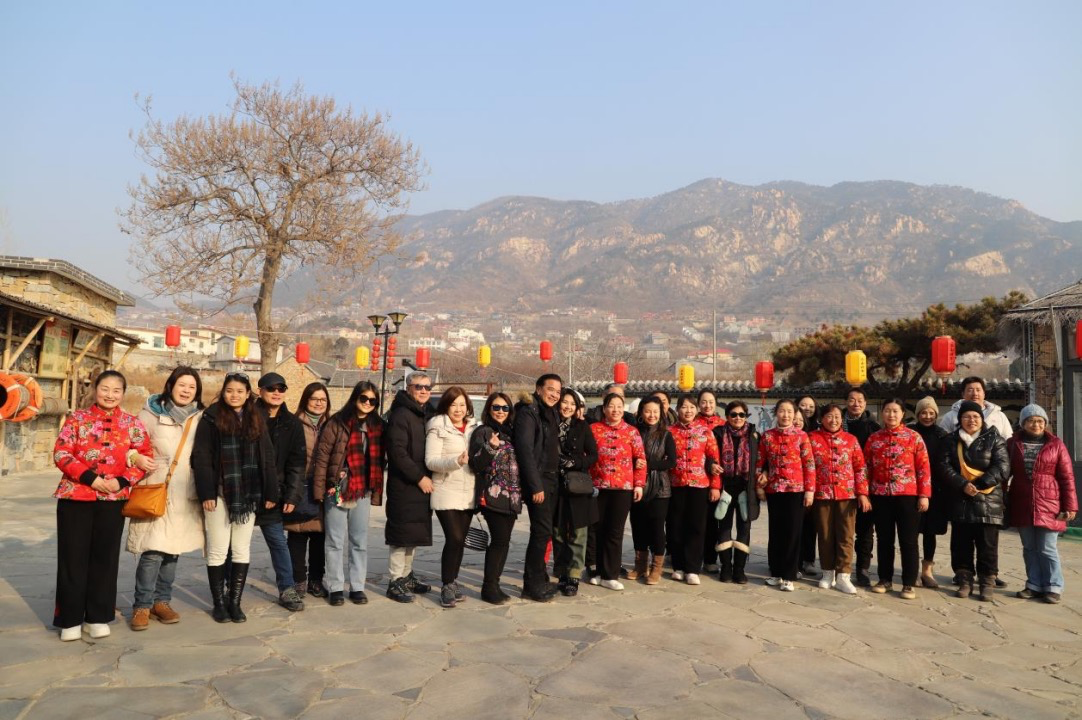
(Li Xiaotong; Liu Xiaohan; Chen Tianyu; Hua Shan; Yuan Yuhua; Hou Yawen; Lei Youting; Lou Xinyu; Gao Yuan; Zhou Nan; Chong Yaqi; Wang Jianle; Chen Shuning; Yang Yang; Wang Jiangshan; Wang Lijun;Li Ziyue; Chen Zeyu)
02-11
02-09
02-05
02-03
02-03
02-03